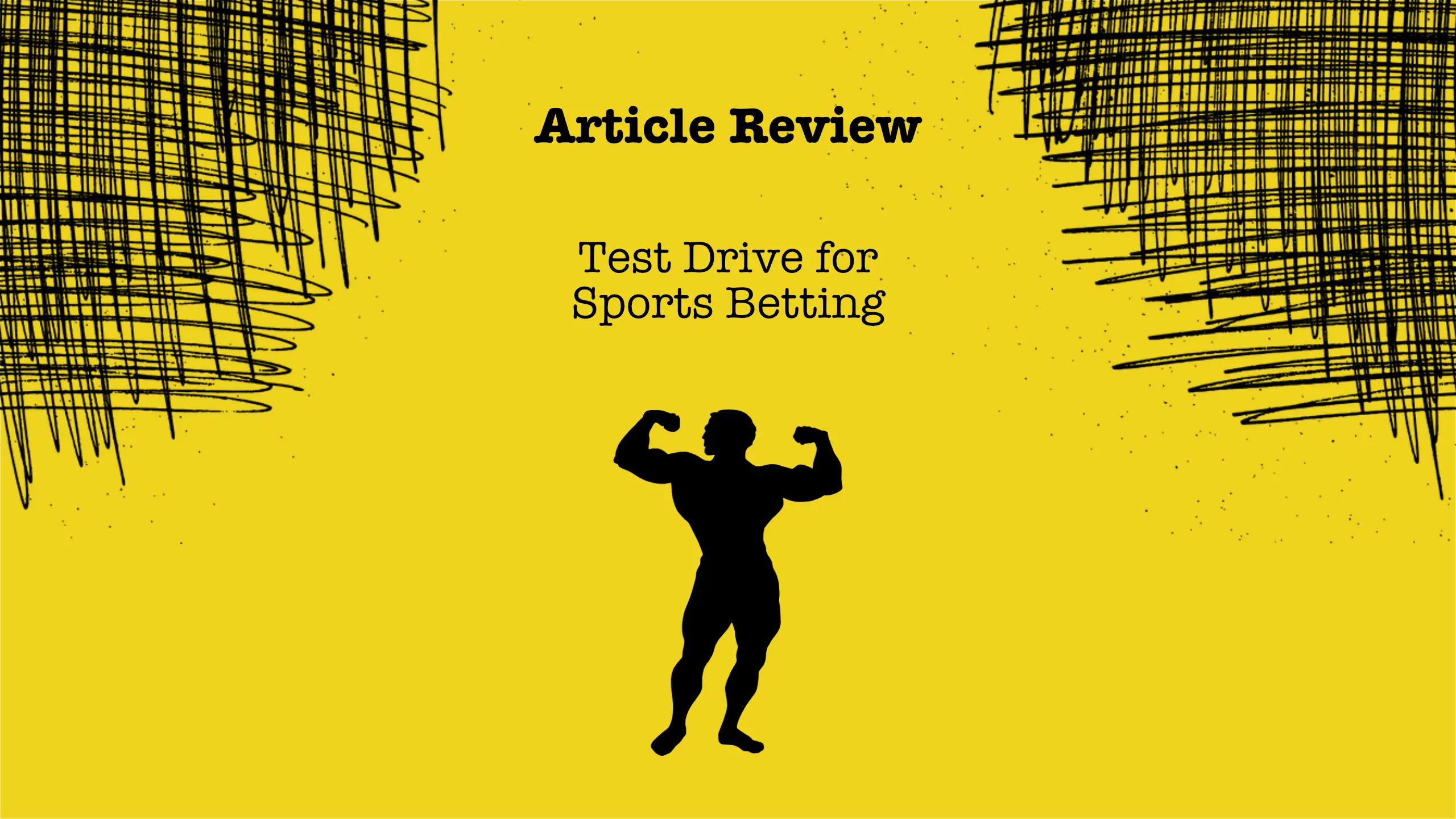Fantasy sports have evolved from a harmless hobby into a powerful gateway to gambling behavior.
In From Fantasy to Reality: The Role of Fantasy Sports in Sports Betting and Online Gambling (Houghton, Nowlin, & Walker, 2019), the authors explore how pay-to-play (P2P) fantasy sports participation influences sports betting and online gambling engagement, revealing important behavioral, motivational, and policy implications.
The study identifies materialism and sports fandom as key psychological drivers connecting fantasy sports and gambling.
While fantasy sports may appear skill-based, the research suggests they often condition players toward gambling behaviors, normalizing monetary risk-taking in entertainment.
Key Concepts
1. Pay-to-Play Fantasy Sports as a Gateway
The study finds that P2P fantasy sports participation can lead to higher levels of sports betting and online gambling, particularly among individuals with high materialistic values.
This transition is facilitated by overlapping characteristics:
- Competitive gameplay with monetary rewards;
- Frequent, fast-paced decision-making;
- Psychological reinforcement through small wins and social comparison.
“Fantasy sports contests that lead to cash rewards may condition fans to be more open to traditional sports betting.”
Daily P2P fantasy players often mirror the behavioral patterns of problem gamblers, including chasing losses, compulsive play, and overconfidence.
2. The Role of Materialism
Materialism — valuing possessions and financial success — acts as a motivational bridge between fantasy sports and gambling.
- Fans high in materialism tend to pursue direct sports betting for quick monetary rewards.
- Fans lower in materialism are drawn to fantasy sports for entertainment or social engagement.
As fantasy sports companies integrate real-money betting options, this materialistic motivation becomes a commercial opportunity — and a regulatory concern.
“Fans motivated by materialism are more likely to be lured toward other gambling activities.”
3. Blurring the Line Between Skill and Chance
Fantasy sports participants often develop a false sense of expertise, believing their game knowledge translates into superior betting skill.
This perceived control reinforces cognitive distortions, similar to those seen in gambling addiction.
The illusion of “skill-based” control — combined with real monetary stakes — creates a psychologically potent mix of confidence, risk, and reward-seeking.
The authors warn that success in fantasy sports can foster overconfidence, which may escalate into riskier gambling behaviors when players transition to sports betting or casino-style games.
4. Vulnerable Groups and Social Risks
The research highlights concerns for vulnerable populations, particularly minors and college students, who are heavily targeted by fantasy sports marketing.
- Fantasy sports platforms increasingly attract 12–17-year-olds, normalizing monetary gaming early.
- College students who engage in daily fantasy sports show elevated rates of gambling symptoms and financial risk-taking (Martin & Nelson, 2014).
Because fantasy contests are framed as “games of skill,” they often operate in regulatory gray zones, making it harder for policymakers to apply gambling protections.
The study calls for clearer categorization and stronger safeguards, especially regarding advertising, age verification, and responsible gaming tools.
5. Industry Expansion and Convergence
Fantasy sports providers have begun integrating sports betting into their platforms to capitalize on cross-market opportunities.
Major operators use in-app betting features, cash reward systems, and affiliate promotions to retain users transitioning from fantasy to betting.
Examples include offshore platforms like Bovada, which allow users to deposit funds and place bets across hundreds of contests instantly.
This convergence blurs distinctions between fantasy sports, sports betting, and online gambling, expanding potential exposure and risk.
6. Behavioral Reinforcement and Complementarity
Fantasy sports and betting are not substitutes — they are complementary activities.
Sports fans increasingly view spending on both as a combined investment that enhances entertainment and emotional engagement.
“Sports fans consider spending on fantasy sports and sports betting to be complementary investments that enhance the consumption experience.”
This perceived complementarity accelerates the normalization of gambling as an integrated part of sports fandom, reinforcing its role in leisure culture.
7. Policy Implications
Policymakers face growing challenges in regulating fantasy sports due to:
- Overlap with gambling mechanisms;
- Youth exposure through sports marketing;
- Cross-platform betting integration;
- Rapid transaction systems with little friction or reflection time.
The authors emphasize the need for education, monitoring, and consumer protection policies addressing both psychological vulnerability and technological accessibility.
Summary of Findings
| Concept | Key Insight |
|---|---|
| Gateway Effect | P2P fantasy sports increase likelihood of engaging in sports betting and online gambling. |
| Materialism | Drives both gambling participation and spending motivation. |
| Cognitive Distortion | Success in fantasy sports reinforces illusion of control and expertise. |
| Vulnerable Audiences | Minors and college students show higher susceptibility to problem gambling behaviors. |
| Market Convergence | Fantasy and sports betting platforms increasingly overlap in design and purpose. |
| Policy Concern | Need for regulation, age restrictions, and responsible gaming measures. |
Academic Reference
Houghton, D., Nowlin, E., & Walker, D. (2019). From Fantasy to Reality: The Role of Fantasy Sports in Sports Betting and Online Gambling. Journal of Public Policy & Marketing, 38.
External References
- Carver, H., & McCarty, K. N. (2013). The effects of materialism, gambling guilt, and religiosity on consumer credit card debt. Journal of Economic Psychology, 39, 278–288.
- Crewe-Brown, C., Blaszczynski, A., & Russell, A. (2014). Online sports betting: A longitudinal study of internet gambling behavior. Journal of Gambling Studies, 30(3), 551–564.
- Dwyer, B., Shapiro, S. L., & Drayer, J. (2018). The impact of daily fantasy sports on problem gambling: A natural experiment. Journal of Gambling Studies, 34(3), 769–780.
- Mahan, J. E., Drayer, J., & Sparvero, E. (2012). The complementarity between daily fantasy sports and sports betting. UNLV Gaming Research & Review Journal, 16(2), 49–59.
- Martin, R. J., & Nelson, S. E. (2014). Relationship of fantasy sports involvement with gambling and problem gambling among college males. Journal of Gambling Studies, 30(3), 553–566.
